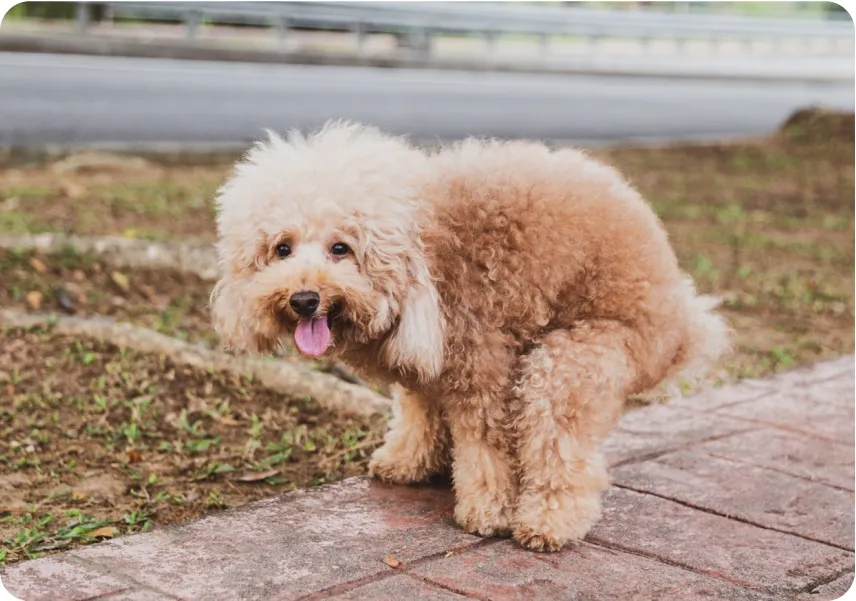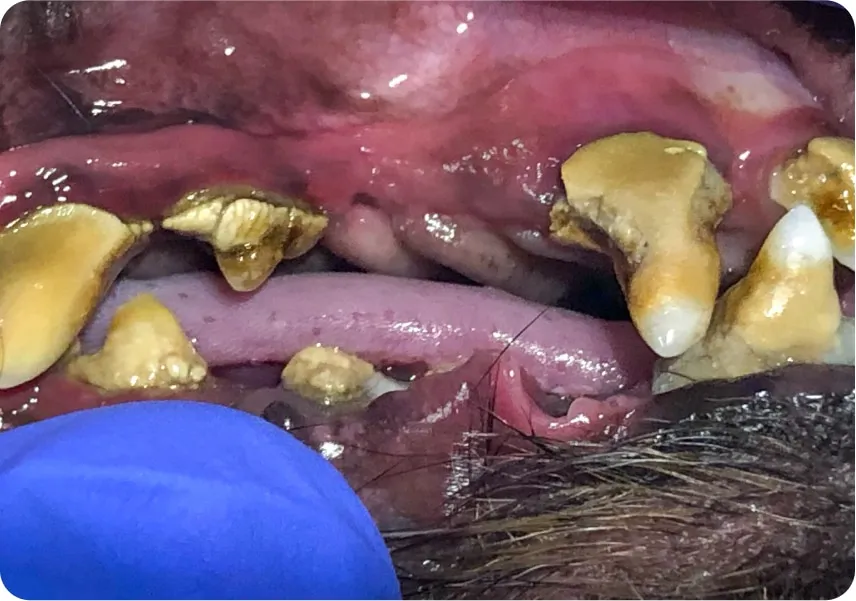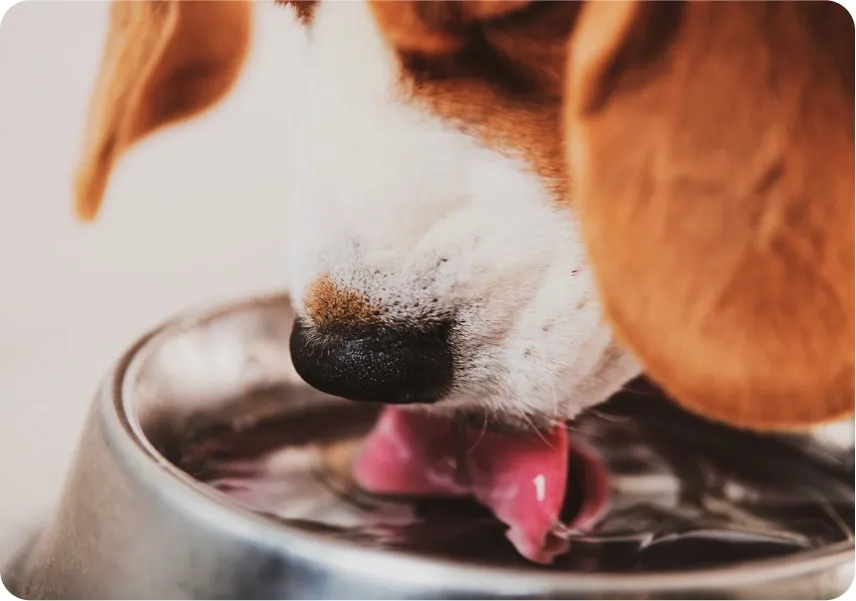Maintaining your pet’s oral hygiene is crucial for their overall health and well-being. While brushing your dog’s or cat’s teeth might seem like a daunting task, there are effective supplementary tools available. Dental water additives, often likened to a mouthwash for pets, offer a convenient way to support healthy teeth and gums by combating plaque and tartar buildup. These additives are designed to be a seamless addition to your pet’s daily water intake, working to freshen breath and promote a healthier oral environment.
It’s important to understand that dental water additives are not a standalone solution. They are intended to complement a comprehensive dental care plan, which should include regular brushing and professional veterinary dental cleanings. When incorporated consistently, these additives can significantly contribute to your pet’s long-term oral health, helping to prevent common dental issues.
Understanding How Dental Water Additives Work
The magic behind dental water additives lies in their carefully formulated ingredients, often enzymatic, which are designed to break down tartar and neutralize odor-causing bacteria. This action directly addresses the root causes of bad breath and contributes to a cleaner mouth for your furry companions.
Many veterinary dental professionals endorse the daily use of these water additives. They can be a valuable tool in managing your dog’s or cat’s oral hygiene, especially for pets who are resistant to toothbrushing. According to the American Kennel Club, persistent bad breath in pets can stem from various underlying issues, including:
- Periodontal Disease: This common bacterial infection affects the gums and bone supporting the teeth.
- Poor Diet: Certain dietary imbalances can contribute to oral health problems.
- Kidney Disease: Impaired kidney function can lead to a buildup of toxins that manifest as bad breath.
- Liver Disease: Similar to kidney disease, liver issues can cause metabolic changes resulting in foul breath.
- Diabetes: Uncontrolled diabetes can lead to a characteristic fruity or acetone-like odor on the breath.
While water additives can help manage the symptoms of bad breath, they are most effective when used as part of a holistic approach to your pet’s health, addressing any underlying medical conditions with a veterinarian.
 Side effects of water additives
Side effects of water additives
Potential Side Effects and Considerations
While generally safe when used as directed, some pets may experience digestive upset from dental water additives. This can manifest as soft stools or a decreased appetite. In rare cases, pets might even avoid their water bowls, leading to a risk of dehydration.
Important Note: Pets with pre-existing digestive sensitivities or compromised immune systems may not be ideal candidates for water additives. It is always recommended to consult with your veterinarian before introducing any new dental product, especially if your pet has a history of gastrointestinal issues. Your vet can help you assess your pet’s individual needs and determine if a water additive is a suitable addition to their dental care regimen.
Weighing the Pros and Cons of Dental Water Additives
Pros
- Ease of Use: The primary advantage of dental water additives is their sheer simplicity. They are typically liquid-based and can be effortlessly mixed into your pet’s daily drinking water. Some innovative products even offer a gel application option, providing flexibility for pet owners.
Cons
- Palatability Concerns: Some pets, like some of our own experienced testers, can be finicky eaters and drinkers. Certain flavor profiles in water additives might be unappealing to some dogs and cats, leading them to refuse the water altogether.
- Digestive Sensitivity: As mentioned, pets with sensitive stomachs might experience gastrointestinal upset.
- Ingredient Vigilance: Pet parents must meticulously review the ingredient list of any product. It is absolutely critical to ensure that Xylitol is NOT present. This artificial sweetener, commonly found in sugar-free products, is highly toxic to dogs and can have severe, even fatal, consequences. Always verify the absence of Xylitol to protect your pet.
 Dogs with advanced gum disease
Dogs with advanced gum disease
Addressing Advanced Gum Disease
For dogs suffering from advanced periodontal disease, oral mouthwashes, including water additives, can offer some benefit by helping to reduce the bacterial load in their mouths. However, it’s crucial to reiterate that these products do not replace the necessity of regular brushing, even if it’s just with water. Consistent mechanical cleaning is paramount for effective plaque removal.
Top Dental Water Additives for Your Canine and Feline Companions
When selecting a dental water additive, look for products that are recognized by the VOHC (Veterinary Oral Health Council). This seal indicates that the product has met stringent criteria for efficacy in controlling plaque and tartar.
Here are some of the top dental water additives to consider:
1. TropiClean Fresh Breath Water Additive
Why we like it: This additive leverages the power of green tea extract to combat plaque and tartar while effectively fighting odor-causing bacteria. It’s a good option for pets who drink from stationary bowls.
Shop for DogsShop for Cats
2. Staff Favorite: Oxyfresh Water Additive
Why we like it: Championed for its 100% non-toxic formulation, Oxyfresh utilizes Zinc to neutralize bad breath. Many pet parents report that their dogs are unaware of its presence in their water, making it a discreet and effective choice. This product has also received recognition from Business Insider as a top-tier dental care product.
3. Petlab Co. Dental Formula Water Additive
Why we like it: Praised for being odorless and incredibly easy to administer, this formula requires just one teaspoon per eight ounces of water. A fresh dose is recommended daily for optimal results.
4. Nylabone Advanced Oral Care Liquid Tartar Remover
Why we like it: This product works by altering the pH of your dog’s saliva, which helps to control tartar formation and eliminate bad breath.
Important Note: This specific product is formulated for dogs only and is not safe for cats. Always ensure you are using a product specifically designed for the species you are treating.
5. Staff Favorite: Virbac C.E.T. Aquadent Dog & Cat Dental Solution
Why we like it: Virbac’s Aquadent stands out with its natural ingredient profile, combining a natural sweetener, prebiotic, and antioxidant. Its proprietary FR3SH Technology uses erythritol, pomegranate, and inulin to combat plaque and bacteria effectively. This is a great option for both dogs and cats.
6. pet::ESSENTIAL™ HealthyMouth® with NutriNeeds™ by W. Jean Dodds, DVM
Why we like it: Certified by the Vet Oral Council, this product also offers a gel application option. Clinical studies suggest that its continued use leads to significant plaque and bacterial reduction, softening any remaining plaque and making brushing and dental chews even more effective.
 Best water additives
Best water additives
Establishing a Robust Home Dental Care Routine
Dental water additives are a valuable component of your pet’s oral hygiene, but they are most effective when integrated into a comprehensive home dental care routine. This routine should encompass regular weekly brushing, a balanced diet, and the use of dental toys designed to help scrape away plaque and reduce bacteria.
Our team also strongly recommends incorporating healthy chews and dental treats between professional veterinary cleanings. By consistently implementing these practices, including the addition of a dental water additive, you can significantly strengthen the overall impact of your dental care efforts and contribute to a healthier, happier life for your beloved pet.
Frequently Asked Questions About Dental Water Additives
- Can I use human mouthwash on my dog or cat? Absolutely not. Human mouthwash contains ingredients that can be toxic to pets, such as alcohol and fluoride, which can cause severe gastrointestinal upset or poisoning. Always use products specifically formulated for animals.
- How often should I change my pet’s water if I add a dental additive? It is best to provide fresh water with the additive daily. If your pet does not finish the water, you can top it off, but replacing it entirely each day ensures the product remains effective and the water is clean.
- Will a water additive cure my pet’s bad breath? While water additives can significantly reduce bad breath by targeting bacteria and plaque, they may not completely eliminate it if the underlying cause is a serious medical condition like kidney disease or advanced periodontal disease. Always consult your veterinarian for persistent bad breath.
- Are there any alternatives to water additives? Yes, if your pet rejects water additives, consider dental chews, dental treats, oral gels, or dental sprays. Of course, consistent brushing remains the gold standard for at-home dental care.
Conclusion
Incorporating a dental water additive into your dog’s or cat’s daily routine can be a simple yet highly effective strategy for improving their oral health. By neutralizing bacteria, reducing plaque, and freshening breath, these products offer a convenient supplement to your existing dental care practices. Remember to always prioritize products that are VOHC-accepted, free of harmful ingredients like Xylitol, and consult with your veterinarian to ensure the chosen additive is the best fit for your pet’s individual needs. A proactive approach to dental care not only prevents discomfort and disease but also contributes significantly to your pet’s overall longevity and quality of life.
